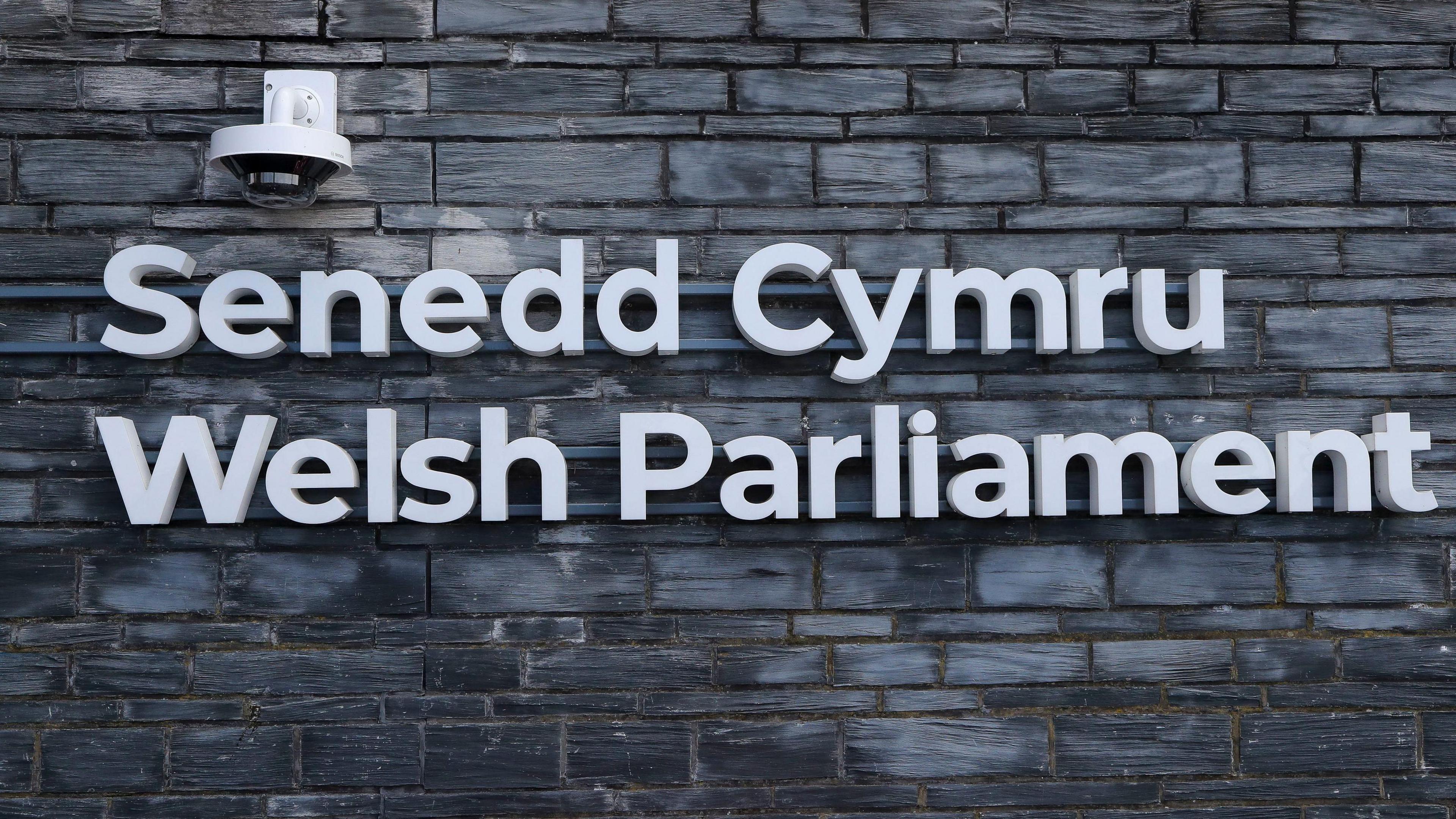Labour Senedd politicians may not be guaranteed seats

The next Senedd term from 2026 will see 96 politicians elected, 30 more than now
- Published
Sitting Labour MSs might not be guaranteed reselection for the 2026 Senedd election.
They look set to face a confirmation vote by their local constituency party, which they would need to pass to be top of the list in one of the "paired" constituencies in the Senedd’s new voting system.
The Welsh Conservatives have also agreed their rules, and Members of the Senedd (MSs) would be granted the right to be at the top of their list if it is agreed by local party executives.
A grassroots official in the party told the BBC he would like to see the party go further and give members more of a say.
Bigger Senedd means cost expected to rise by £1.2m
- Published27 September 2024
Reform have sights set on Senedd elections in 2026
- Published5 July 2024
Plans for more Senedd politicians get go-ahead
- Published8 May 2024
In previous Labour selection contests, incumbents have needed to pass a 50% threshold of Constituency Labour Parties (CLPs) and affiliated bodies in order to avoid a trigger ballot.
In 2026 the 32 seats used for the recent general election will be paired to form 16 new constituencies, each returning six Senedd members, to make up an expanded 96-seat parliament.
Parties will rank up to eight candidates per seat, with places one and two the most sought after for Labour on that list as they are most likely to become MSs.
In all bar the very worst of some forecast scenarios, Labour looks set to return two members in the vast majority of constituencies.
Should a situation arise that more than one incumbent Labour MS passes the confirmation vote to sit at the top of a merged constituency list, then local party members would vote again to decide who ends up top, before filling the other vacancies.
It means that a lot could be at stake in places such as the proposed new Merthyr Tydfil, Aberdare and Pontypridd seat where current MSs Dawn Bowden, Vikki Howells and Mick Antoniw would all be expected to stand for selection.
Three MSs – Jane Bryant, John Griffiths and Rhianon Passmore - could also be chasing the coveted top two slots in the new Newport and Islwyn constituency.
A Welsh Labour spokesperson said: "We don't offer comment on internal processes such as selections."
Conservatives
For the Welsh Conservatives, sitting MSs could in theory be rejected by local party executives, forcing them to face a vote of party members.
If more than one existing MS got incumbency in one of the new larger seats, members would have to vote on how they rank at the top of the list. Regional Tory MSs can choose which seat to exercise their right in.
That has not been enough for some grassroots Tories, who think all candidates should be subject to a ballot of members to give them more of a say.
It means it could be harder for Senedd members to be uprooted ahead of an election, as Suzy Davies was at the last election when members in her area backed Tom Giffard in a ballot.
Huw Davies, Deputy Chairman of the Conservatives in South Wales East, has called for a party consultation.
He said: “Members from all corners of the party in Wales have contacted me in overwhelming support of my call to replace the new incumbency rules.
“The idea that MSs can claim incumbency rights in completely new seats under a new electoral system is universally seen as extraordinary, audacious, and indefensible.
“At the last Senedd election, members had greater choice in candidates, but these new rules have been imposed without any consultation, disregarding the views of rank-and-file members.”
BBC Wales was told that the rules were in line with previous rules drawn up by the UK party, and were agreed by the Welsh board.
One source the BBC spoke to said that the bodies that would take the decision “end up being quite large” and a “lot of people you have to win around”. In one Westminster constituency in south Wales they said twenty people are involved.
Another source, though, argued that the executives are not well staffed and that few of the membership are on them. Incumbent MSs could manoeuvre them to suit, they argued.
A separate plan to make gender quotas law was scrapped last month after it ran into repeated potential legal difficulties.
Welsh Labour are understood to be considering whether the list for any given seat will be "zipped" – in other words it would start with a woman, followed by a man, followed by another woman; or whether gender parity would be applied across the 16 seats as a whole, to allow for greater flexibility in certain seats.
Labour’s Welsh executive committee is currently deciding on the rules for 2026, with a final decision likely once the new constituency map is finalised in March 2025.
Initial plans for the 16 new constituencies were put out to consultation in September, with a review due to be published in December.